Category: Hospice
Article pertaining to Hospice to help the patient, caregivers, facility staff members, and hospice care team members prepare the patient for a “good death.”
Article pertaining to Hospice to help the patient, caregivers, facility staff members, and hospice care team members prepare the patient for a “good death.”

Sleep patterns can help estimate how close a terminally ill person is to dying. Learn how changes in sleep can indicate approaching death and how to support your loved one during this time.

Discover how "poop muffins" and "power pudding" can help maintain regular bowel movements. These fiber-rich recipes are especially beneficial for those experiencing constipation, including the elderly and individuals on certain medications. Learn how to make these tasty, digestive-friendly treats at home.
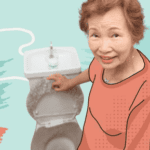
Understanding bowel movements in terminally ill patients is crucial for their comfort and dignity. This guide offers practical tips for caregivers and hospice nurses to manage constipation, diarrhea, and other bowel issues, ensuring patients' better quality of life.
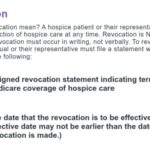
Understanding when and how to revoke services is crucial in hospice care. This article aims to shed light on revoking hospice services, why it may be necessary, misconceptions surrounding it, and the potential impact when patients or their families decide to restart hospice care.
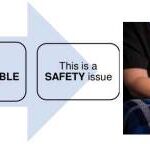
Discover how to use the CUS tool and Caring Feedback Model to advocate for your loved one's health. This guide empowers caregivers to communicate effectively with healthcare providers, ensuring their concerns are heard and addressed.

Explore comprehensive approaches to managing hallucinations in loved ones with dementia. This article covers pharmacological methods, focusing on Seroquel and non-drug strategies such as Naomi Feil's validation therapy. Learn how to validate feelings, de-escalate fear, and improve the quality of life for those experiencing cognitive impairment.

End-of-life wound care is crucial for patient comfort and dignity. This guide covers practical tips for preventing infection, managing symptoms, and supporting caregivers during this sensitive time. Learn how to make wound care a compassionate part of hospice and palliative care.
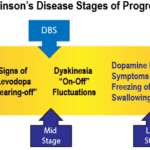
Identifying end-stage Parkinson's for hospice admission can be challenging. This article explores key criteria, including decline in function, weight loss, swallowing difficulties, and mobility issues. Learn how hospice professionals assess patients and utilize guidelines to ensure appropriate and timely hospice care for those with advanced Parkinson's disease.

Discover effective strategies for managing end-of-life crises in hospice care. Learn how to recognize signs of distress, implement calming techniques, and provide compassionate support to patients and families. This guide offers practical tips for hospice nurses and caregivers to navigate challenging situations with confidence and empathy.
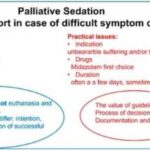
This guide covers the essentials of palliative sedation for hospice patients, including ethical dilemmas, timing, recommended medications, and monitoring effectiveness, ensuring comfort during the end-of-life journey.

Navigating interstate hospice transfers can be complex. This guide explores the process, challenges, and considerations for patients and families. Learn about Medicare regulations, coordination between hospice agencies, and how to ensure continuity of care when moving across state lines during end-of-life care.

Learn how to communicate effectively with healthcare professionals when caring for a loved one with a terminal illness. Improve communication, advocacy, and coping skills to ensure your loved one receives the best care possible.

Hospice care is a unique medical approach that prioritizes comfort and peace for the terminally ill rather than vital signs or curative treatments. It offers holistic support, addressing physical, emotional, and spiritual needs. This compassionate care improves the quality of life, dignity, and a peaceful end aligned with the patient's values.

Managing bowel problems in terminally ill patients is crucial for their comfort and dignity. This guide offers practical tips for caregivers and hospice nurses to address constipation, diarrhea, bowel obstruction, and ascites, ensuring patients' better quality of life.

Dementia is a complex condition affecting millions worldwide. Diagnosing dementia requires the expertise of medical professionals specializing in cognitive disorders. By guiding families and caregivers through the diagnostic process, you can empower them. In this article, we'll explore the steps to find the right specialist for a dementia diagnosis and how families can prepare for the crucial doctor visit.
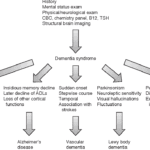
Getting a formal diagnosis of dementia is essential for understanding the condition, accessing appropriate treatments and support services, and ensuring the best possible care. This comprehensive guide explores the importance of a specific diagnosis in predicting patient needs for comfort and quality of life, as different types of dementia require distinct care approaches. Avoid the risks of a generic diagnosis and empower yourself with knowledge.

Caregivers can find it challenging to ensure dementia patients wear their CPAPs overnight. This article offers practical tips and strategies to help caregivers ensure comfortable and uninterrupted CPAP use for their loved ones.

This guide covers how to write effective hospice nursing narratives, key documentation areas, and the importance of detailed and negative-based wording to support continued hospice eligibility.

Kennedy ulcers are skin lesions that can develop in individuals nearing the end of life. This guide explores their appearance, causes, diagnosis, and treatment. It offers insights into identifying Kennedy ulcers and providing comfort through pain relief, hygiene, and repositioning. Additionally, it addresses the emotional impact and coping strategies for caregivers and loved ones.

The journey towards the end of life can be a challenging and emotional time, both for the individual facing the end of their life and for their caregivers and family members. One aspect of this journey that may be unfamiliar to many is the presence of self-soothing sounds made by the patient during the transition and actively dying phase. These sounds can be puzzling and sometimes unsettling for caregivers and family members who have never witnessed them. This article will explore self-soothing sounds, why they occur, and how caregivers and family members can distinguish between self-soothing sounds and signs of discomfort.
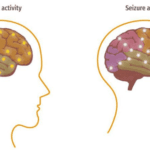
This article delves into the intricate relationship between dementia and seizures, offering insights on identification, safety protocols, and advocacy for caregivers.

Caring for a terminally ill loved one can be challenging and emotional. As an experienced hospice nurse case manager, you understand the importance of providing compassionate care and support to loved ones and their families. In this educational article, we will explore the common journey that terminally ill loved ones and their caregivers face as they approach the end of life. We will summarize this journey's various aspects, offering guidance and separating fact from fiction.
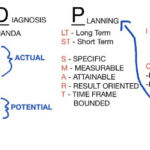
As a hospice nurse, you are vital in providing compassionate care to terminally ill patients and their families. To ensure the best possible outcomes, you rely on a systematic approach known as ADPIE: Assessment, Diagnosis, Planning, Implementation, and Evaluation. This process guides you in delivering holistic and individualized care, addressing not only the physical needs of patients but also their emotional, spiritual, and psychosocial well-being.

As a hospice admission nurse, asking the right questions is crucial for assessing patients' eligibility and providing compassionate care. This article explores critical questions to understand the patient's condition, decline timeline, hospitalizations, functional abilities, cognitive status, and comorbidities. By gathering this information, nurses can support informed decisions, tailor interventions, and ensure a "good death" for patients and families.